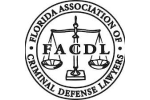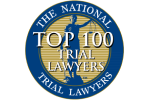to Save Yours
Distributing Prescription Drugs Outside the Course of Professional Medical Practice
The Controlled Substances Act (CSA) via 21 U.S.C. § 841(a), makes it illegal for “any person” to knowingly or intentionally distribute or dispense a controlled substance. An exception to the prohibitions of this Act are certain individuals who are considered registered “practitioners,” such as physicians and pharmacists as described in 21 U.S.C. §§ 821-23. While the exception to prosecution is necessary for the greater good of society, the Supreme Court has held that these practitioners are still subject to Federal criminal prosecution “when their activities fall outside the usual course of professional practice.” United States v. Moore, 423 U.S. 122, 124, 96 S.Ct. 335, 46 L.Ed.2d 333 (1975); see also 21 C.F.R. § 1306.04 (providing that a practitioner “shall be subject to the penalties. . . relating to controlled substances” unless the prescriptions he writes are “issued for a legitimate medical purpose . . . [and he is] acting in the usual course of his professional practice”). In other words, if a physician is writing prescriptions outside the course of professional practice and fails to act in good faith as a medical professional, a physician is subject to criminal liability under 21 U.S.C. § 841(a). Moore, 423 U.S. at 138, 143, 96 S.Ct. 335.
How Does This Charge Occur?
Federal authorities in the Middle District of Florida and other jurisdictions have increasingly focused on ensuring that medical practitioners are writing legitimate prescriptions for controlled substances in good faith and for legitimate medical issues. With the ever increasing demand for opiate painkillers and other prescription narcotics comes prospect of doctor shopping and the practice by many doctors of overprescribing medications. As with many drug cases, a low level arrest occurs of a street level dealer and the chain of supply is followed until it is determined who the prescribing doctor is. If Federal law enforcement sees a trend of what appears to be prescriptions issued outside the usual course of professional medical practice and not for a legitimate medical purpose they may seek a search warrant of a doctor’s medical practice. Depending upon what the search warrant yields, the doctor could be charged with distributing prescription controlled substances outside the course of professional medical practice. If this occurs, it is imperative to contact an experienced Federal physician drug attorney as soon as possible to preserve your legal rights and take the steps necessary to avoid compromising your medical license.
How do I Defend Myself Against This Charge?
As a former medical malpractice lawyer I have always felt that it is very difficult to prove that a doctor or other medical practitioner is liable for misconduct whether it is civil or criminal in nature. First and foremost, if a doctor was acting in accordance with the standard of medical care generally recognized and accepted, he or she should not be found guilty of this allegation. When created, the Controlled Substances Act did not establish a uniform national standard and in failing to do so, pursuant to United States v. Tobin, 676 F.3d 1264 (11th DCA 2012), it manifested its intent to leave it to each individual state to define the applicable standard of professional practice. Thus, because most medical cases are expert driven, if your Federal criminal attorney can show that the local standard of medical care was met, the doctor should be acquitted of wrongdoing. If a drug is prescribed with an objective good faith belief that the doctor was acting within the accepted standard of medical practice, there lies a defense to this kind of allegation. As the Controlled Substances Act only prohibits distribution of prescription drugs that is not authorized, a distribution is unlawful if the prescription was not made for a “legitimate medical purpose.” A natural defense to be raised by your Federal criminal lawyer is the lack of the mental state of providing the drug illegitimately.
How can the Mayberry Law Firm Help?
Jason Mayberry is an experienced Federal attorney, appearing in our Federal courts on a consistent basis. Because the Federal criminal system is unlike our State court system, it is imperative to hire someone well versed in Federal law and procedure. Unlike run of the mill drug cases, when a doctor or other medical practitioner is accused of a Federal drug crime it is helpful to have an attorney well versed with medical standards. As a former medical malpractice attorney Jason Mayberry is familiar with medical standards of care and the requirements necessary to show those standards were met. If you’re a doctor or other medical professional and you’ve been charged with a Federal drug crime, contact Jason Mayberry today at 813-444-7435 or at 727-771-3847.














